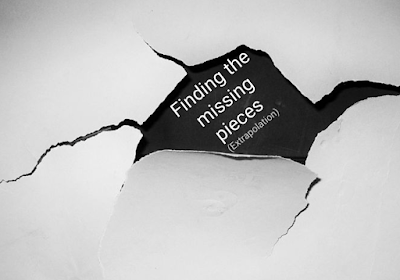Reading Between the Lines
You have to 'love' a challenge! There is nothing better, as an educator, than to have to think beyond the usual... beyond the norm, to not only engage and invigorate the learner, but more importantly the practitioner!
My challenge... How to better support my students to read between the lines not only for the purpose of 'Inference' but also 'Evaluation' where they are able extrapolate even more information not found in the text? This moves us into the area of Critical Literacy where deeper meanings are uncovered in relation to personal situations and context and may also challenge the assumptions of the author.
Investigation and breaking down of the Probe tests indicated both Inference and Evaluation required further support. This was also indicated in the PAT Reading Comprehension where Local and Global inference were noted as areas requiring further development.
This baseline data will be reviewed at the end of the year using both the Probe and also PAT Reading Comprehension to form a comparison.
Another tool is also going to be added for data collection. Devised by the Sydney Theatre Company, a Benchmarking Rubric for Comprehension and Inference will also be used. This Rubric is aligned to Level 3 of the NZ Curriculum and includes Ideas and Processing Strategies. As I stated earlier, I had concerns that potentially our methods of data collection may not reflect growth in Inference beyond what is being tested. By including this rubric I may be able to gather and discuss data collected at a more granular level, a more qualitative approach where the students lived experience is part of the collection.
Using Process Drama within the classroom allows many different types of conventions to be used to develop character connections, inferential comprehension and differing perspectives. Further research in the area of Drama as a pedagogy, to support reading, has led me to read 'The School Drama Book' by Robyn Ewing and John Nicholas Saunders (2016). In this Colin Lankshear (1994, p.22) states, "Opportunities to story/challenge/question and interpret from multiple perspectives can build students' capacity for deep understanding and so enable them to become more critically literate."
I have also been investigating the work of Dorothy Heathcote who explored teaching through Drama rather than about Drama. Her work on using quality literature and Process Drama strategies to enhance literature has become the cornerstone of many studies. http://dramaresource.com/mantle-of-the-expert/ is a wonderful example of how her process has been used in schools.
Lastly, Professor Peter O'Connor, Director Centre for Arts and Social Transformation, The University of Auckland has been of significant assistance in guiding me to resources that may help my inquiry. I am currently locating the research project DICE Drama Improves Lisbon Key Competences in Education. Consortium (2011), specifically Volume 2 which investigate 12 case studies and elaborates on the processes employed. Watch this space!
My Hypothesis to date...
If I can develop my students Inferential and Evaluative comprehension skills by integrating Process Drama into the Reading Program their Critical Literacy and consequentially Reading Ages should improve?




Comments
Post a Comment